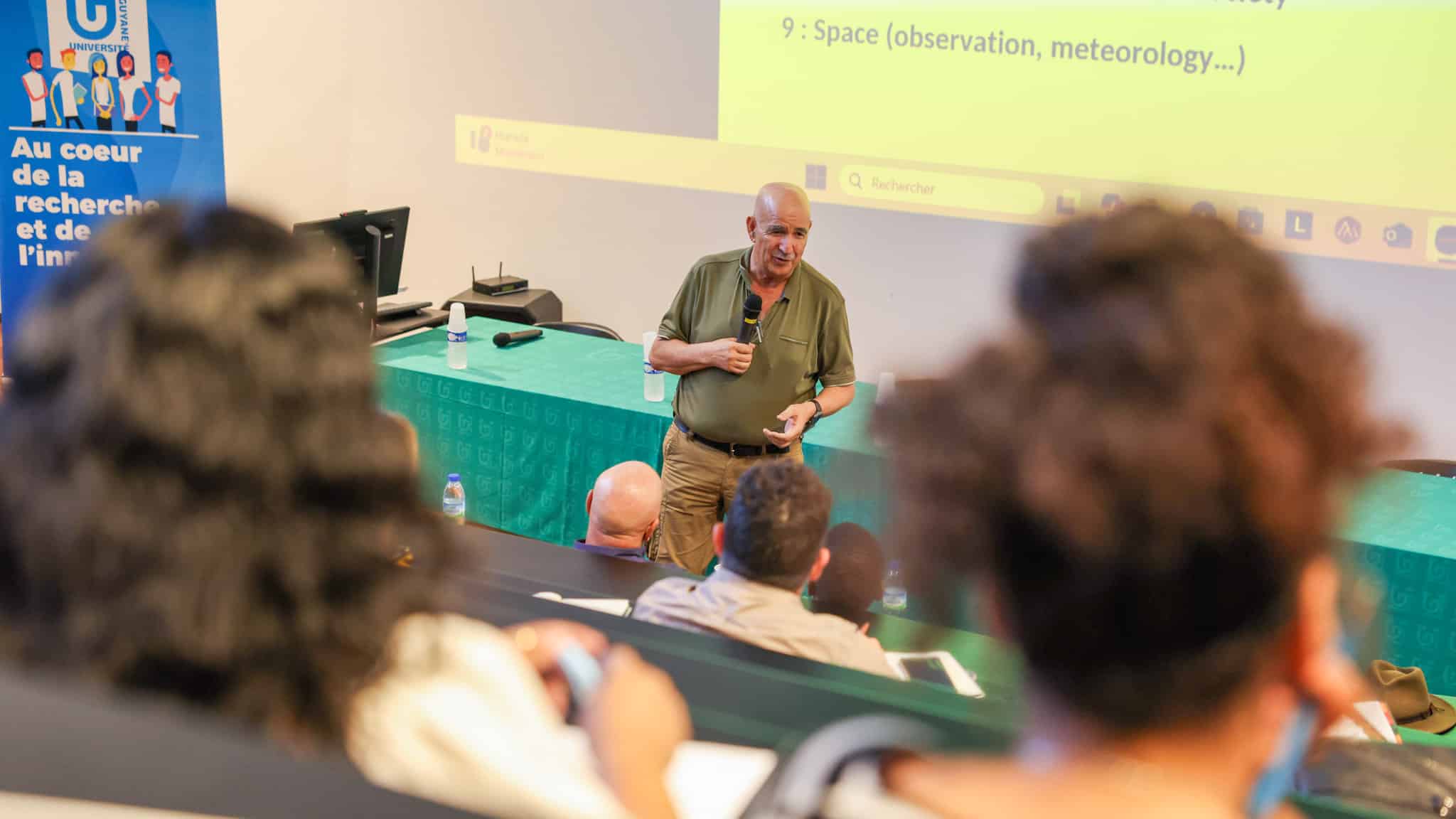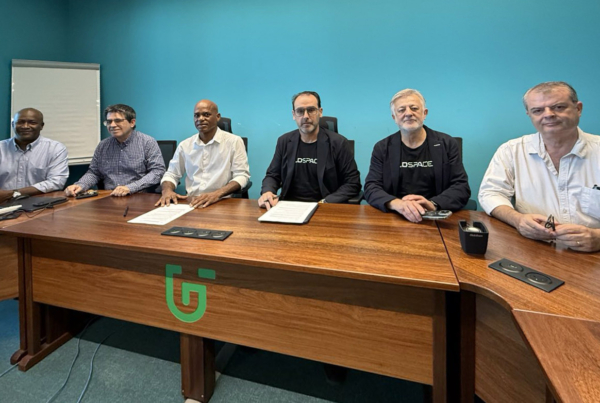
The University of French Guiana, in partnership with the Franco-Brazilian Centre for Amazonian Biodiversity (CFBBA), is organising a series of public meetings on climate change between September and October 2025.
The aim of this initiative, ahead of COP30, to be held from 10 to 21 November 2025 in Belém (Brazil), is to provide scientific and public responses to the climate challenges facing Amazonia.
A series of meetings to prepare for COP30
By organising these exchanges, the University of Guyana aims to provide a forum for dialogue between researchers, students, local players and the general public. The central question guiding this cycle is clear: «Faced with climate change, what academic knowledge, know-how and approaches can be brought to bear?»
Each meeting addresses a specific theme and highlights the research being carried out in French Guiana and the Pan-Amazon region.
Health and climate change
The first meeting, held on 12 September 2025, focused on health. Several experts presented their work on :
- Infectious diseases and zoonoses.
- The importance of traditional medicine.
- International cooperation in the face of health risks.
- Environmental health issues, toxicology and public policy.
These discussions provided a better understanding of the impact of climate change on the health of Amazonian populations.
Energy and energy transition
Le 1st October 2025, The second meeting focused on the theme of energy. For three hours, speakers from French Guiana and the Amazon debated energy resources, renewable energies and solutions for a successful energy transition.
These discussions highlighted the need to develop sustainable models, adapted to local realities and respectful of the Amazon.
Habitat and climate adaptation
Le 15 October 2025, The last meeting will focus on habitat. The aim will be to explore how scientific and traditional knowledge can inspire habitat solutions that are adapted to climate change, sustainable and resilient for local populations.
A strong commitment to the Amazon
Through these events, the University of Guyana is asserting its role as a major scientific and academic player in the pan-Amazon region. It is highlighting its expertise on crucial issues: combating climate change, preserving Amazon biodiversity and improving the well-being of local populations.
This series of meetings is a unique opportunity to promote research in French Guiana and to strengthen scientific and cultural cooperation on an international scale.
With this series of debates, the University of French Guiana is demonstrating its desire to make an active contribution to the COP30 discussions. By combining academic, traditional and citizen knowledge, it is paving the way for innovative solutions that are tailored to the climate challenges facing the Amazon.
FAQ - Frequently Asked Questions
What is COP30?
COP30 is the 30th Conference of the Parties on climate. It will take place from 10 to 21 November 2025 in Belém, Brazil. This global event brings together governments, scientists and civil society to find solutions to climate change.
Why is the University of French Guiana organising meetings ahead of COP30?
The University of French Guiana wants to prepare civil society and researchers for the challenges of climate change. These meetings provide an opportunity to share knowledge, promote research in French Guiana and open up debate with the public.
What themes are covered in this series of meetings?
Three major climate-related themes are explored:
- Health (12 September 2025): infectious diseases, traditional medicine, environmental health.
- Energy (1 October 2025): energy transition and renewable energies.
- Habitat (15 October 2025): home adaptation and sustainable solutions.
Who takes part in these meetings?
The exchanges bring together researchers, teachers, Amazonian experts, international partners and the general public. This diversity encourages the cross-fertilisation of scientific and traditional knowledge.
Why are these meetings important for French Guiana and the Amazon?
They highlight local expertise and strengthen pan-Amazonian cooperation. These debates are essential if we are to propose solutions tailored to the realities of the Amazon region, which is particularly vulnerable to climate change.
How can the public get involved?
The meetings are open to the public. They provide an opportunity to talk to experts, understand the climate issues and discover practical ways forward.




